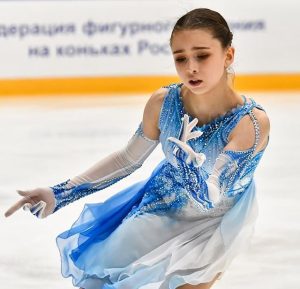And who here has argued that those around her shouldn't be held responsible?
But who exactly should be responsible? Yes, it's easy to assume it was all Tutberidze's/the Doctor's doing, but a fact that keeps being left out of this whole thing is that skaters can be tested randomly at at any time during the year, not just during competitions. So if one were to believe Tutberidze had an entire schedule down and accidentally mis-dosed or overdosed Kamila too close to Nationals, that still doesn't explain why other skaters in her camp/on the Russian team have (except for a few cases) never tested positive any other time. [BTW- I don't know how often, if at all, they actually were tested but it still remains a possibility]
No one knows what Kamila's 24/7 schedule was, and it could very well be that her parents (or grandpa..) thought they had the secret to her success. Or it could be Tutberidze and she's managed to somehow get several of her previous students to trash her without saying a word about doping. I know she herself has talked about it in the past. But if one were to think this was a state-sponsored, across the board advantage, I'd ask you to sit through any mens free skate in recent history and explain why most of them crawl through their sloppy programs after 2 minutes

rather than her coach.




 so it is more likely that this is a Team Eteri formula more so than a Russian formula. T&M somehow finally got it together for once after switching to Team Eteri.
so it is more likely that this is a Team Eteri formula more so than a Russian formula. T&M somehow finally got it together for once after switching to Team Eteri.

 at the idea of HMQ working with Tutberidze.
at the idea of HMQ working with Tutberidze.
